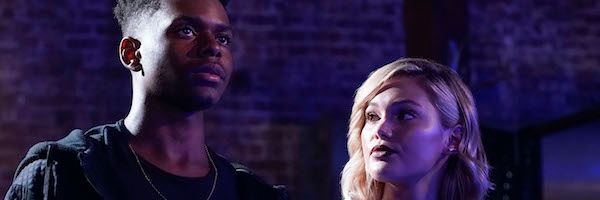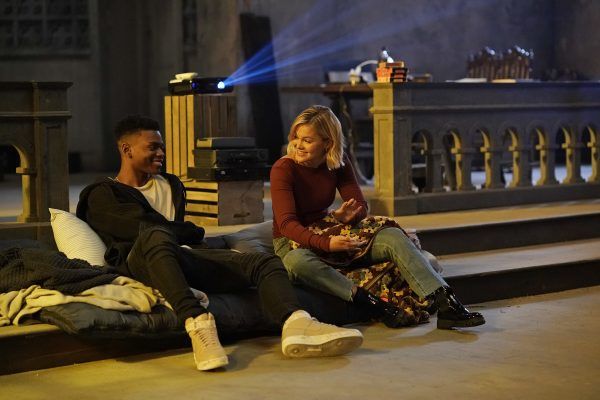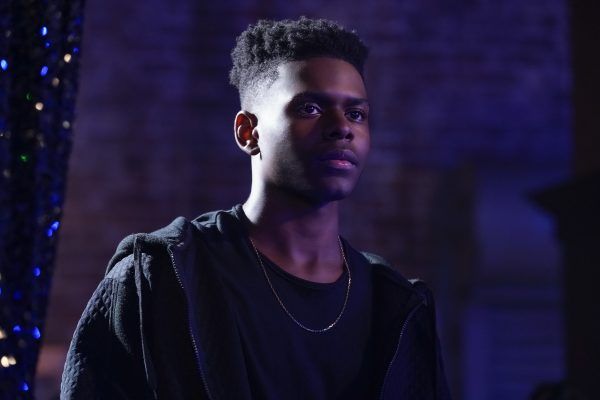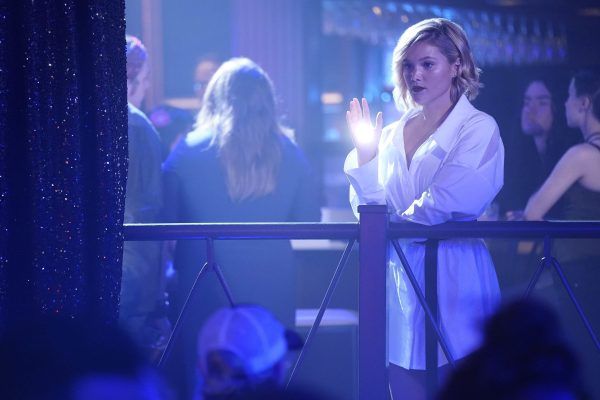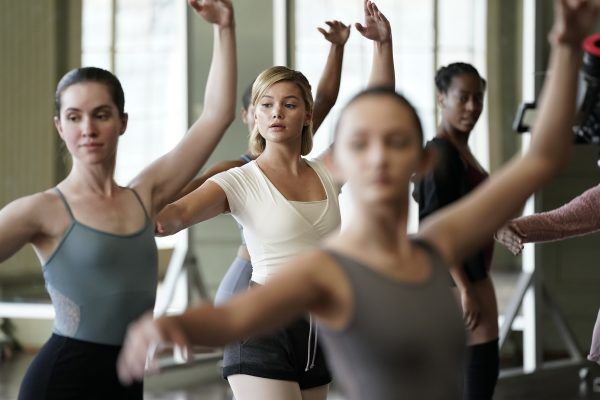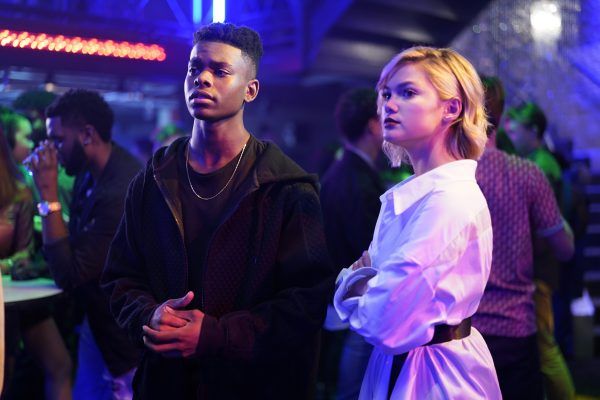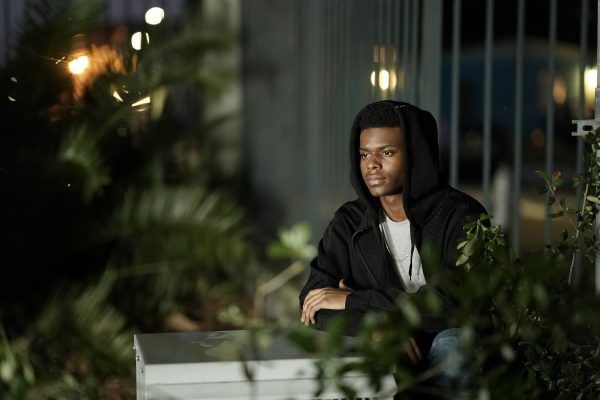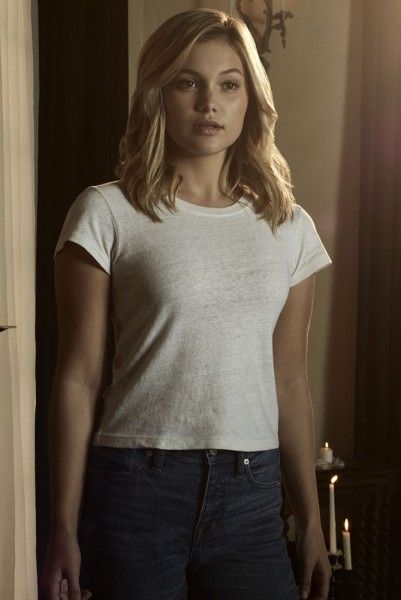In Season 2 of the Freeform series Cloak & Dagger, Tandy Bowen (Olivia Holt) and Tyrone Johnson (Aubrey Joseph) are trying to keep their superpowers under the radar, which is a challenge with so many bad things happening throughout the city. Desperate to help, especially when they discover that a group of young girls have gone missing as part of a sex trafficking ring, they find that being a hero can often cause more problems than it solves.
During this 1-on-1 phone interview with Collider, showrunner Joe Pokaski talked about building on what they set up in Season 1, how Season 2 evolved, bringing Mayhem into the story and what Emma Lahana brings to the character, exploring the family dynamics more deeply, what happens when being a superhero doesn’t quite go the way you expect, what he hopes viewers take from their human trafficking storyline, and why he wants to change the paradigm with each season.
Be aware that there are some spoilers discussed.
Collider: Looking back at the first season, when did you feel that the show had really hit its groove, and how did you want to build on that for Season 2?
JOE POKASKI: I think we had a really strong pilot. I feel like the big tent poles we always saw with the show were Episode 4 and Episode 7 of Season 1. Episode 4 was our transition. That’s when Tandy and Tyrone were walking through the church and talking, and we wanted to make sure that we gave enough time to develop our characters, before we gave them their call to action. We had them doing a little navel gazing and yelling at each other, so that they could end up really understanding what they’re supposed to do. And then, by the end of Episode 7, we’d solidified them as best friends, which other shows might have done by the end of the first episode. I’m really happy we earned it. And then, once Episodes 8, 9 and 10 came, that was our Act 3. I felt like that’s where I knew the show would always be. Once we got there, we always knew that was gonna be the pace of the series, from there on out.
How much of the Season 2 that we’re seeing now is what you’ve always had in mind, how much evolved during and after Season 1, and how much is developing as you do it?
POKASKI: It’s really a combination of all three. For example, I always wanted Tandy to get back into ballet. We loved the idea of her trying to make up for eight years of missed practices, in eight months. And then, other things evolved, like when we came up with the fact that Tyrone would be wanted for murder, in Season 1. We liked the idea of taking him out of his gilded cage of a family and putting him in the church, so that evolved. And then, the beauty of working with actors like Olivia [Holt], Aubrey [Joseph] and Emma [Lahana] is that you see what they can do and it sparks ideas in your head, as to what you want to put them through, so a lot of it comes from the dialogue between the actors and the writers, and what they can do. It challenges us to give them crazier things to do.
Has making a second season been more or less challenging than the first season? Does it get easier because you have a better idea of what the show is, or does it get harder because you have to get bigger and do more?
POKASKI: It’s a little of both. There are certainly easier parts. Going into the pilot, I did not know what Olivia and Aubrey could do. It was a crapshoot. We had hundreds of people read, and we cast the best two. But having a season under my belt, watching them always exceed my expectations made it easier, in Season 2, because I don’t think there was a moment in the writers’ room where we created a story and said, “Do you think they can pull this off?” It was never a question of whether it was something physically challenging or subtle, or whatever. Origin stories are tough, but you need to pull them off right. Now, we got to take the training wheels off. Even with Emma and Mayhem, we were very lucky that we cast a great actress to play Bridget O’Reilly. To watch what Emma could do with both sides of the coin has been amazing.
It’s so fun that we get to see Mayhem causing some mayhem this season. For those who are not familiar with the comics, who is that character and how does your take on the character affect the story that you’re telling this season?
POKASKI: Mayhem is Bridget O’Reilly, who’s a cop and an ally to Tandy and Tyrone. If I remember correctly, she was put in a glass container filled with radioactive gas and turned into Mayhem. Because we don’t have glass containers that big, we changed her story a little. What we got really excited about was having a friend turn into an enemy. That’s universal, and where good stories come from. The other thing was really exploring a woman who’s angry at the system and who isn’t weighed down by our sense of morality or guilt. The way Emma plays Mayhem is not as evil, per se, but as guiltless, which is an interesting aspect.
What are you most excited about, as far as what Emma Lahana brings to the character?
POKASKI: The most interesting thing is how she has such a good grasp of the two sides of her personality. I don’t wanna give away too much, but she’s grappling with the more docile side and the more aggressive side. Emma really plays them both nuanced, so that neither of them seem like a caricature, but both seem very distinct. Later on in the season, we have an opportunity for her to have a scene with herself, and it’s amazing. The choices she was making were not only inspired but really consistent, and I think that’s really cool. The other thing that’s really interesting is the physicality. We didn’t wanna give Mayhem crazy superpowers. We wanted to make her about 20% faster and about 50% stronger than other humans, so Emma took some Krav Maga classes and trained with several martial arts teachers. Because she’s actually a trained ballerina herself, she took to it really well. It was really fun to watch either a stunt coordinator or a martial arts teacher be like, “All right, you’re gonna try this, and then this,” and he’d name about 15 moves and say, “And you’re not gonna be able to do it all at once.” And Emma would be half-way through it, remembering everything and throwing a guy across the room. It was just interesting to see how quickly she took to it and how well she did.
How will Mayhem feel about Tandy and Tyrone, and how will they feel about what she’s doing and how she chooses to operate?
POKASKI: That’s the beauty of it all. Mayhem, honestly, won’t think much about Tandy and Tyrone unless they’re in her way. How they feel about her is really one of our touchstones of the whole season. This season, for Tandy and Tyrone, is about what kind of hero you’re going to be, and how far you’re willing to go to be that hero. Mayhem provides an interesting point where there are going to be different points of the season where Tandy or Tyrone agrees with them, and Tandy or Tyrone disagrees, and it creates tension between Tandy and Tyrone, which is always fun for storytelling.
I love that, even though this is a comic book/superhero show, we do get to spend time with the characters’ families, or at least see what they’re going through with their families. This season has a bit of a role reversal with that, with Tyrone separated and watching his family from afar, and Tandy actually rebuilding her relationship with her mother. What was it like to explore that, for the writers and the actors?
POKASKI: It’s been fun. We have a great writers’ room. If we lined up all of our family experiences, it’d look so differently. We all have different perspectives on mothers, on fathers, and on responsibilities with children. We all got very excited about the idea that Season 1 was about Tyrone living with this family that he thought was smothering him, so we gave him a, “Beware of what you wish for because now we’re gonna take them all away, and we’ll see how much you miss them.” There’s a vulnerability to Aubrey, which is unlike any other actor. When he’s staring at his mom from afar because he can’t say hello, you just feel for him, and you feel his loneliness. You feel like, to some degree, he deserves it, but then he has to overcome and find new strength in himself. And then, on the Tandy side, we did the exact opposite where Tandy was a loner, who was looking at her mom’s work schedule so that she could avoid her, but by the end, she made the very brave and very uncomfortable decision to move in with her mom and take care of her. We put them in as uncomfortable position as possible with their families, and the beauty of having Gloria Reuben and Andrea Roth, on the other end of that, is that you get to not only tell great stories between mothers and sons and daughters, but it also allows them to carry some stories by themselves, which we’ll see, over the course of the season.
Wanting to do good is obviously very noble and honorable, and it’s nice to want to help people, but when you try to do that in the real world, things don’t always, or really ever, go as planned. How much will that test Tandy and Tyrone, this season?
POKASKI: I think that you might have just sold the poster for Season 2. We all want to do good, but real life and complications get in the way. You’ll see, as early as in the first episode, that Tyrone is trying to do good, but he messes up, a couple of times, and causes some trouble. And then, over the course of the second season, Tandy starts thinking that she understands what women who are abused need and thinking that she’s helping them, but it does not help them. One of the beauties of our show is that we remember our kids are young. I was going to say teenagers, but they’re not teenagers anymore. When I was young, all I did was make mistakes, so I like the idea of having heroes that make mistakes because we all do.
The series explores some pretty heavy subjects, with drug and alcohol abuse, domestic violence, and now human trafficking, even though you have these two young people at the center of it. Why was it important for you to tell the story of human trafficking in America, in this season and on this show?
POKASKI: For starters, Tyrone and Tandy, or Cloak and Dagger, have always been the characters that dig deep into those worlds. They’re the heroes for the forgotten children in the Marvel Comics lore, and that felt like part of the landscape. There’s an article, every other week, about superhero glut, but I don’t think anyone is taking on the real life villains of the world. The origin of it was when I was on Underground, my last show, and I was talking to an expert on slavery, I asked, “Where’s the worst human trafficking? Where’s the worst slavery? Sudan? Congo?” And he laughed at me and said, “The worst trafficking is about five miles that way on the highway,” and we were in Baton Rouge, at the time. He was explaining how the highway system was a circulatory system for sex and work slaves, and that we didn’t really do anything about it. So, when we started talking about something to explore in Season 2, it felt like, why not shine some light on this? Why not shine some light on those motels that you drive by and wonder who’s staying there? Knowing Olivia and Aubrey, and knowing that they’re human beings who want to do right, it just felt like the right story to tell, this season.
How big of a part of the story will that be this season, and what do you hope people will learn from the story that you’re telling?
POKASKI: I don’t wanna give away too much. It’s a color we paint with quite a bit. It’s not necessarily driving the plot, entirely, but it’ll be a fairly big part of it. It’s a third rail that we’re gonna touch and electrocute ourselves with, a little bit. What I want people to do is understand that it’s there. We can all willfully ignore that we live in a country where, because we turn a blind eye with our priorities, people are enslaved and we just let it happen. We did a lot research and talked to a lot of experts, and the women of the writers’ room took the lead on a lot of it. We’re trying to educate on simple things, like if you see a young woman without the proper coat and there’s a man handling her money, she’s probably being trafficked. There are a lot of things to look out for, and we’re hoping just to open people’s eyes to it. If we can have somebody who makes the right phone call, at the right time, that would be worth it.
On a show like this, it seems like you always have to think ahead, at least a little bit, in order to lay the groundwork. While you’re doing Season 2, how much are you already thinking ahead to Season 3, or figuring out where you could go next?
POKASKI: A little bit. We definitely want to make sure Season 2 is a beautiful thing, unto itself. I grew up watching too much TV, and I’m such a tremendous TV fan that I take Season 2 way too seriously. I think about Season 2 a lot. Season 2 of Alias and Season 2 of Buffy really defined what those series were, so we wanted to make sure that we focused on Season 2 and made sure that it was representative of the show, hopefully for many season to come. One of the fun things we get to do, at the end of each season, is change the paradigm a little. We did it with Mayhem, when we brought her out of the water, at the very end os Season 1, and we’re gonna do the same thing with Season 2. I like the idea of making it impossible to be repetitive by making a little bit of an adjustment, at the end of each season.
Marvel’s Cloak & Dagger Season 2 airs on Thursday nights on Freeform.

